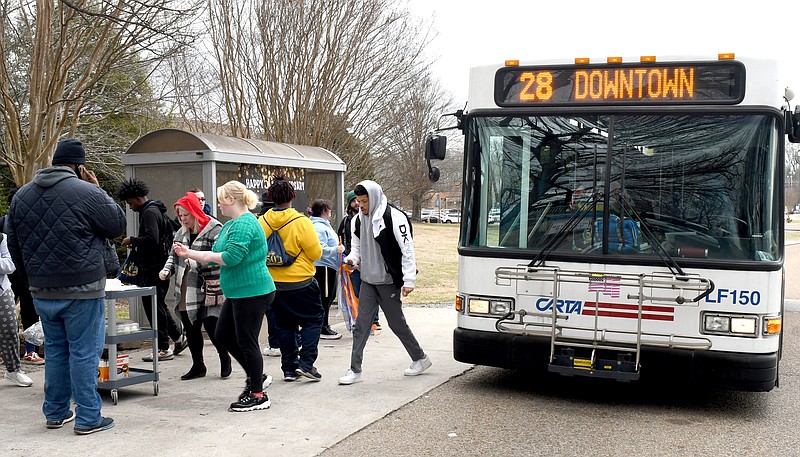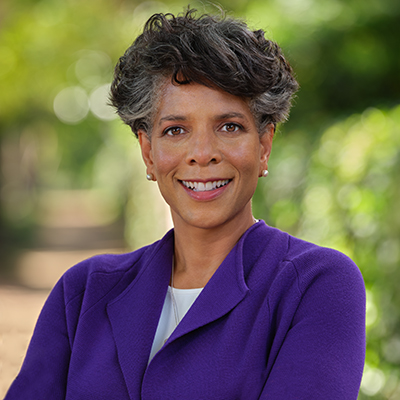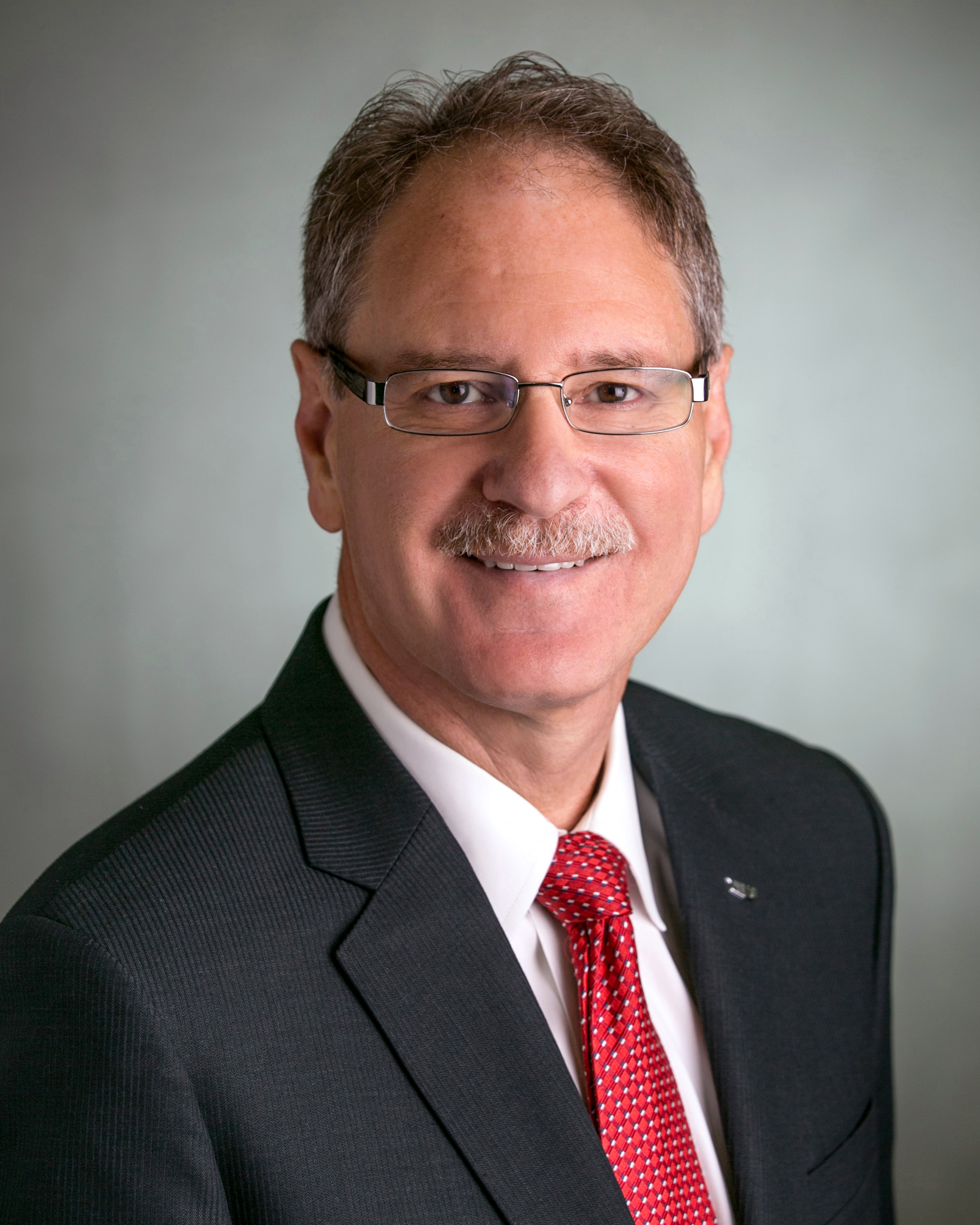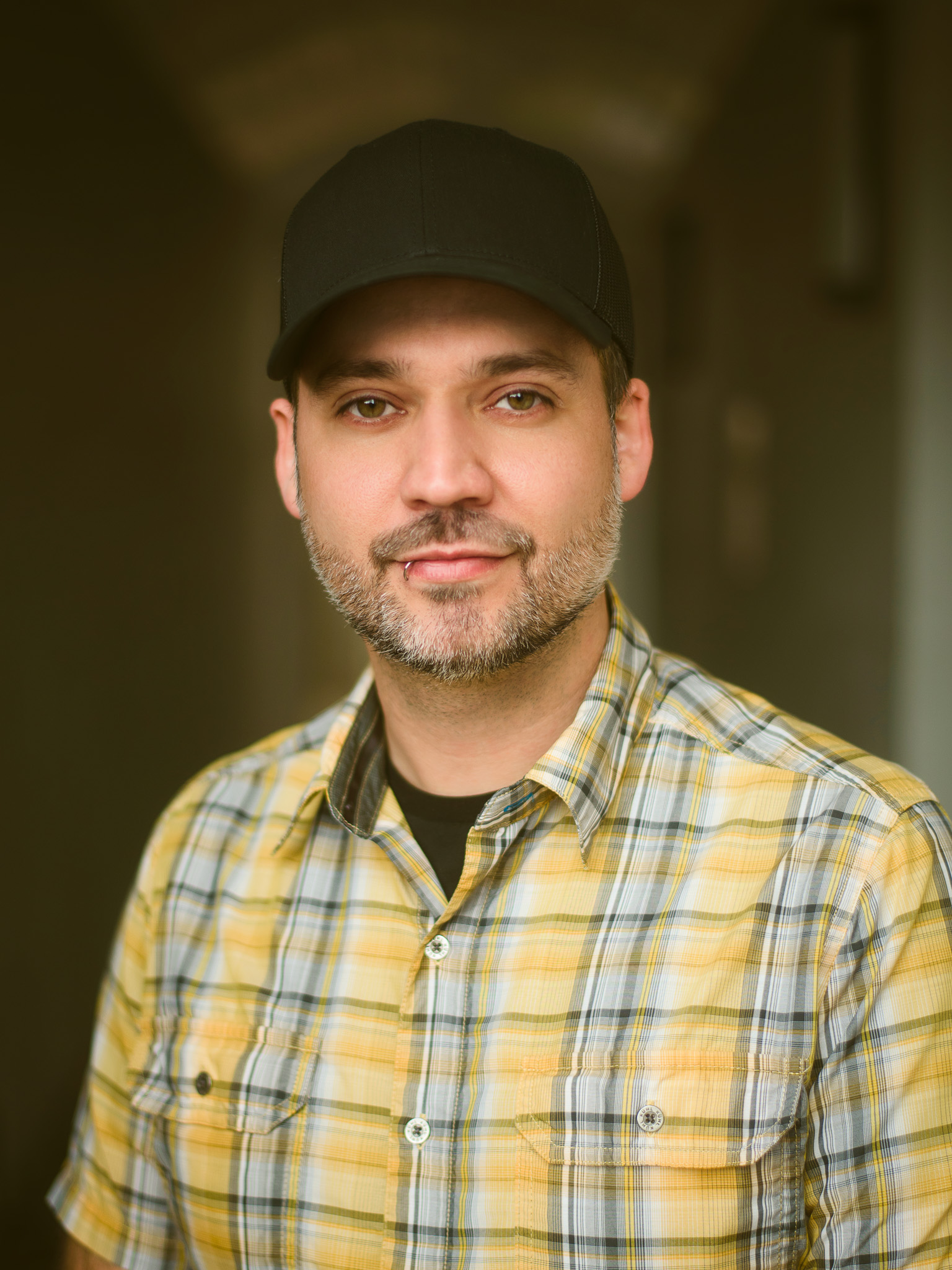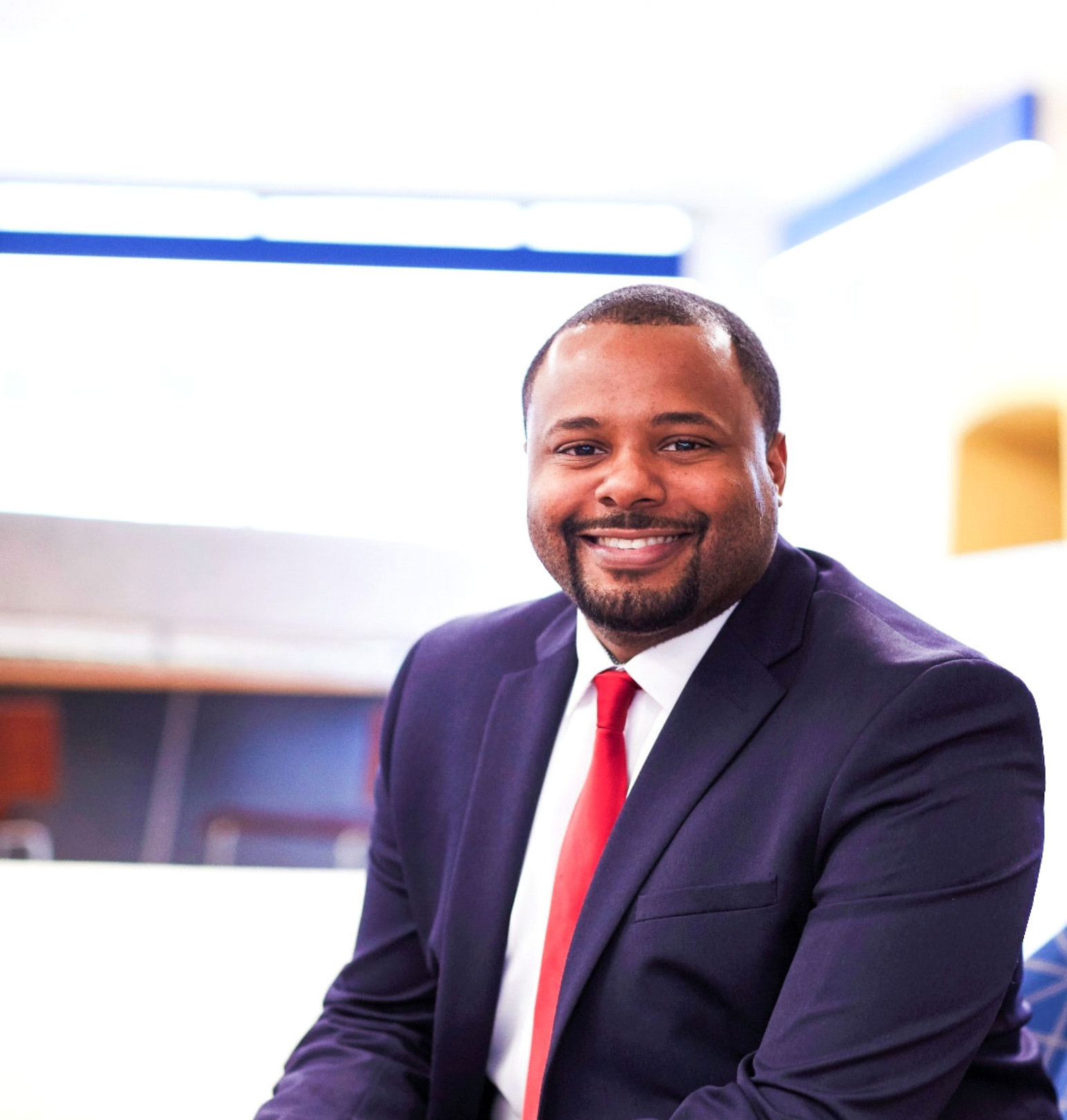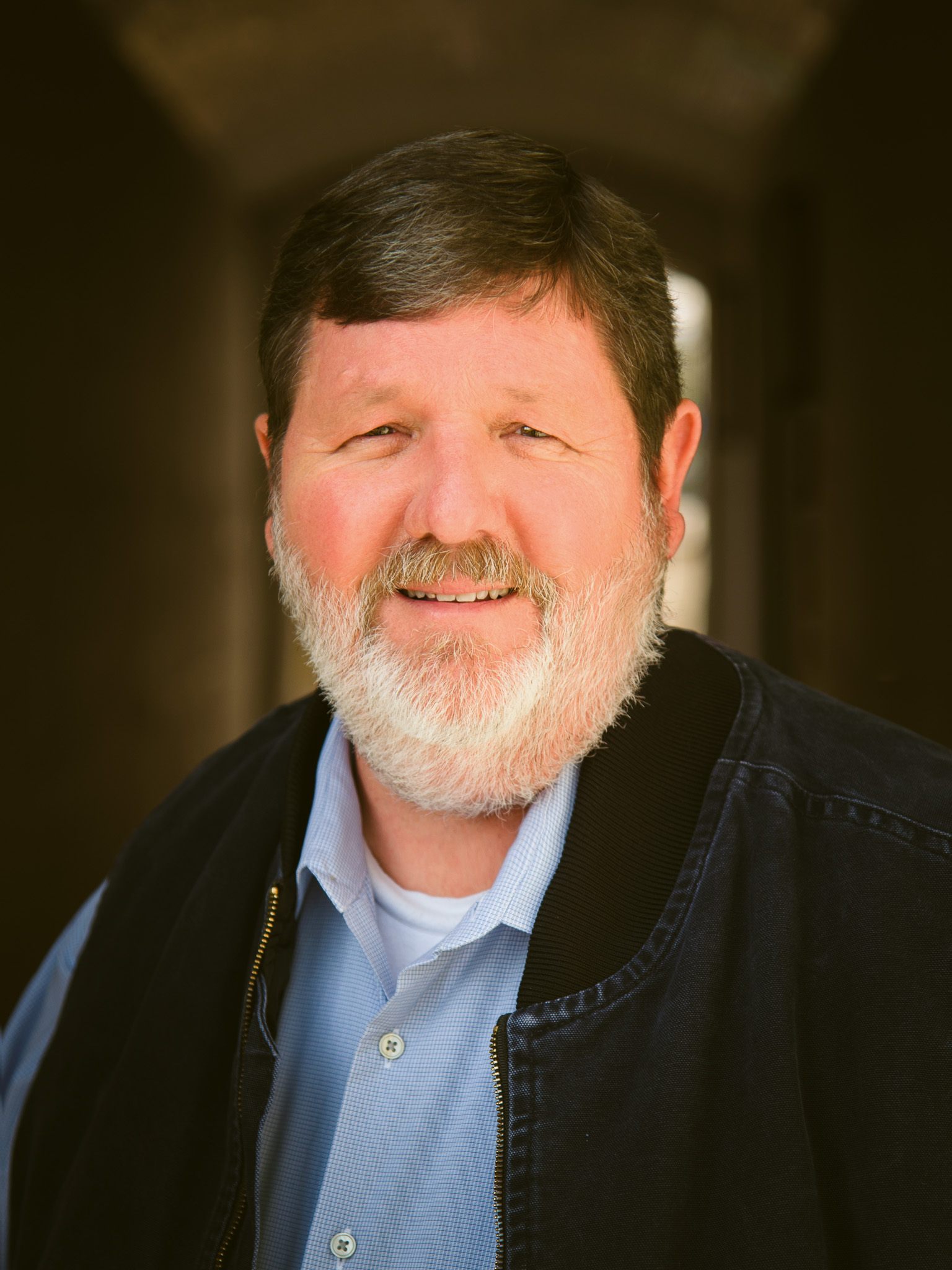Hoping to provide people with the knowledge necessary to make positive behavioral changes, Corey Evatt has sought to make two of his passions -- veganism and public transportation -- more accessible for Chattanoogans.
In 2016, he launched a nonprofit called ChattaVegan, which has a website that lists vegan restaurants in the Chattanooga area -- a tally that Evatt said has grown during the last several years. Later, prompted by questions he had about the city's transit system, he set up another website, dubbed ChattaTransit, in 2022.
"The first initiative was with food," he said in a phone call Tuesday. "If anybody wanted to eat more plant-based food, I made that as accessible as possible, and with public transportation, I personally had challenges finding out resources."
That included locating schedules, determining how much fares cost and figuring out how to secure his bike on the front of a bus.
"I wanted to aggregate all those resources into a centralized place," he said.
A senior analyst for a telecommunications company, Evatt has also been tracking ridership numbers on the ChattaTransit website and hopes to continue to boost transparency about the system's performance. Evatt started attending CARTA board meetings last spring and heard later that there would be an opportunity to join the panel as terms began to expire.
Mayor Tim Kelly has since overhauled the Chattanooga Area Regional Transit Authority's board of directors as part of a larger effort to refocus the priorities of the city's public transportation system. On Tuesday, the Chattanooga City Council confirmed Kelly's appointment of eight new members to the 11-member board -- including Evatt -- and reappointed one returning member, LeAndrea Sanderfur. Their terms will last until February 2028.
"We were able to recruit some real rock stars to this board who share a passion for a new vision for public transit, reintroducing CARTA to increase ridership and functionality," Kelly said in a phone call Tuesday.
The changes come as CARTA's executive director, Lisa Maragnano, prepares to retire sometime this year, citing some nonmajor health issues and a sense that it's time for a fresh perspective at the organization. The director of CARTA for the past decade, Maragnano said she can't recall when there's been this much turnover on the CARTA board.
"It was a good mix on this past board, and I'm getting know this board here," she said in a phone call Friday. "I think this will be a good mix as well."
FIRST MEETING
The new members held their first meeting Thursday and elected Johan de Nysschen, former chief operating officer of Volkswagen's North American region, as its chairman.
Kelly's administration approached the retired executive about serving on the panel, de Nysschen said in a phone interview Thursday. He sees public transit as an important means of connecting struggling, low-income workers with higher-wage jobs.
"If we are unable to address this issue of the reality of two Chattanoogas, investment will slow down, new job opportunities will begin to flatline, our city growth rate will slow down and our community will be the one that loses," de Nysschen said. "We have to continue to attract investment, which means we have to have a workforce that is accessible to employers but also can get to work."
One of CARTA's barriers is the relatively low population density in Hamilton County, de Nysschen said, which impacts ridership and makes it more expensive to serve.
"My early assessment is we have a strong foundation in the CARTA organization, and by that I mean the workforce, I mean the leadership, I mean the processes, I mean the structures," de Nysschen said. "But we need to use that foundation to address the very significant challenges that the organization faces."
Public transit plays a critical role in addressing workforce challenges in Chattanooga, Kelly said.
"People need to be able to get to work, particularly low-income Chattanoogans," he said. "It's a well-known fact that having a functional public transit system is an important strategy around increasing our labor force participation rate along with child care. This is a piece of a puzzle -- a big piece."
Kelly said he sees the shakeup as a good opportunity to cast a new vision for public transit in Chattanooga that includes electrification, automation and "micro-mobility" options -- small, lightweight modes of transportation like scooters or bikes. He'd also like to see developers take public transit into account when working on housing projects.
Although it serves about 3 million people annually, Kelly said CARTA has among the lowest ridership rates of any public transit system in the nation -- something he hopes to change.
IMPROVING PARKING
The mayor said CARTA also acts as the lead agency for the city's parking system, which involves managing ticketing for on-street parking and administering city-owned lots, but Chattanooga lacks a comprehensive parking strategy.
"We haven't had a thoughtful or integrated parking policy," Kelly said.
When he sat on the River City Co. board of directors, Kelly said, there was an extensive and expensive study performed about downtown parking, but few of its recommendations have been implemented. The study showed while there are plenty of parking spaces in Chattanooga, fewer than a third are publicly available. Many are closed off in private lots.
"We've got to try harder to negotiate with those folks to make that parking available to people -- or some of it available to people -- in usable hours and things of that nature," Kelly said. "None of that parking inventory is knit into a widely available public parking system."
LABOR RESET
The mayor also wants to reset labor relations at CARTA, which he characterized as toxic.
"This is a situation we inherited, but I think the public record is pretty plain if anyone's ever been to a CARTA board meeting," Kelly said. "It's not a great situation between the union and management at CARTA. We hope to be able to improve it."
Lakecha Strickland, president of the Amalgamated Transit Union Local 1212, agrees with the mayor's assessment. She has worked at CARTA for almost 26 years.
Optimistic that workers will have a more vocal presence at future meetings, Strickland said the union is particularly pleased the mayor has placed a former vice president of ATU Local 1212, Bill Nye, on the CARTA board.
"My hope is to repair the relationship between management and its employees and return it to one that's more harmonious," Nye said in a phone call Friday.
Previously, members of the CARTA board have heard almost exclusively from executive management, Strickland said, and not workers.
"The workers are the true soldiers on the streets that know exactly what a company needs, and for us not being heard, it's really been detrimental to the growth of CARTA," she said. "I want to thank the mayor for the diverse board that he's chosen, and with those great minds, I think things can move forward in the right direction."
Maragnano said in a phone call Friday that the relationship between management and the union is stressful but not toxic.
"The goals that we have and the goals that they have are sometimes not the same," she said. "There's a definite way that we could be much more cohesive in working together. The board doesn't have anything to do with that at all."
Although there is a process for anyone to address the panel if they wish, Maragnano said, the CARTA board is not responsible for day-to-day operations. It handles policy and finances.
KEEPING THE BUSES RUNNING
CARTA Chief Operating Officer Jeff Smith told the new board members Thursday the transit system, like other employers across the nation, has had to navigate manpower shortages during the past two years, particularly among fixed-route bus drivers.
In 2022, Smith said, he reached out to 137 candidates for bus operator positions. Smith interviewed 70 of those candidates and ended up hiring 26. To reach pre-pandemic service levels, Smith told board members, CARTA needs to have 85 active bus drivers. The system has 81 full-time drivers and one part-time driver.
Much of the system's turnover is among newer recruits. Scheduling is based on seniority, which means new employees often receive weekend or night shifts.
Strickland estimated the starting pay for drivers is about $20.95 per hour.
According to data reported to the Federal Transit Administration, CARTA spent nearly $24.7 million on operations in 2021, with 23% of those dollars -- approximately $5.8 million -- coming from local sources. The rest originated from a combination of state funding, federal assistance and directly generated revenue like fares. Out of the $2.6 million in capital funding CARTA spent in 2021, 82% of those dollars came from federal assistance.
Since fiscal year 2020, CARTA has received about $5.8 million from the city of Chattanooga, and Hamilton County has provided an annual contribution of $105,200 during the past 14 years.
"Funding is the main challenge," Maragnano said.
It's a situation the city, county and other interested municipalities will have to evaluate in order for the system to continue to grow, she said.
REGIONAL FOCUS
In an interview with the Chattanooga Times Free Press in late January, Kelly said there's a fundamental tension in the public transit realm between the frequency with which a system can serve a specific house or neighborhood and its capacity to reach the largest area possible.
"We're in a no man's land in that regard," he said. "It's not a great situation, and traditional public transit analysts would say, 'Well that's because you're not spending enough money.'"
However, one aspect that's been lacking is a regional focus -- the "R" in CARTA, Kelly said. The city of Chattanooga is the organization's primary source of local funding.
"It's a good chance to refocus the mission," Kelly said in January, "and make the case for what it should do and, hopefully, enlist the support of other municipalities that could ... find it useful as a tool."
Chattanooga Mayor Tim Kelly has appointed eight new members to the Chattanooga Area Regional Transit Authority’s 11-member board of directors:
— Charita Allen serves as the director of workforce development for the state of Tennessee. She previously served as deputy administrator for economic development with the city of Chattanooga.
— Stephen Culp is a former U.S. Navy reserve officer, U.S. Peace Corps volunteer and NCAA Division I athlete. He is the co-founder of Delegator, Pro Diligence and Smart Furniture.
— Johan de Nysschen was a member of the boards of Volkswagen North American Region, Volkswagen of America, Inc. and chairman of the Supervisory Board of Volkswagen de Mexico. He retired as chief executive officer at Volkswagen North America in 2022.
— Corey Evatt is a senior analyst at a telecommunications company and created the website ChattaTransit in 2022 to help boost knowledge of and access to the city’s public transportation system. He is a lifelong Chattanoogan and graduated from Central High School.
— Evann Freeman joined EPB as director of government relations in December 2019. He previously served as a field representative for U.S. Sen. Lamar Alexander for more than a decade.
— Bill Nye worked at CARTA’s Lookout Mountain Incline Railway from 1981 until his retirement in 2021. He previously served in multiple positions in ATU Local 1212.
— Daniela Peterson joined the Trust for Public Land in 2018 and has more than 18 years of experience working with nonprofits, city government, juvenile detention and public schools.
— Arcie Reeves is active in her community and participates in local organizations like the Chattanooga Chambers MidTown Counsel. A Chattanooga native, she works as a program manager for a federal agency and has a background in human resources.
— LeAndrea Sanderfur (reappointment) is another Chattanooga native. She is a retired education and community volunteer who also advocates for individuals with disabilities. She has served on the CARTA Care-a-Van Advisory Board for six years and on the CARTA board since 2019.
Contact David Floyd at dfloyd@timesfreepress.com or at 423-757-6249.
